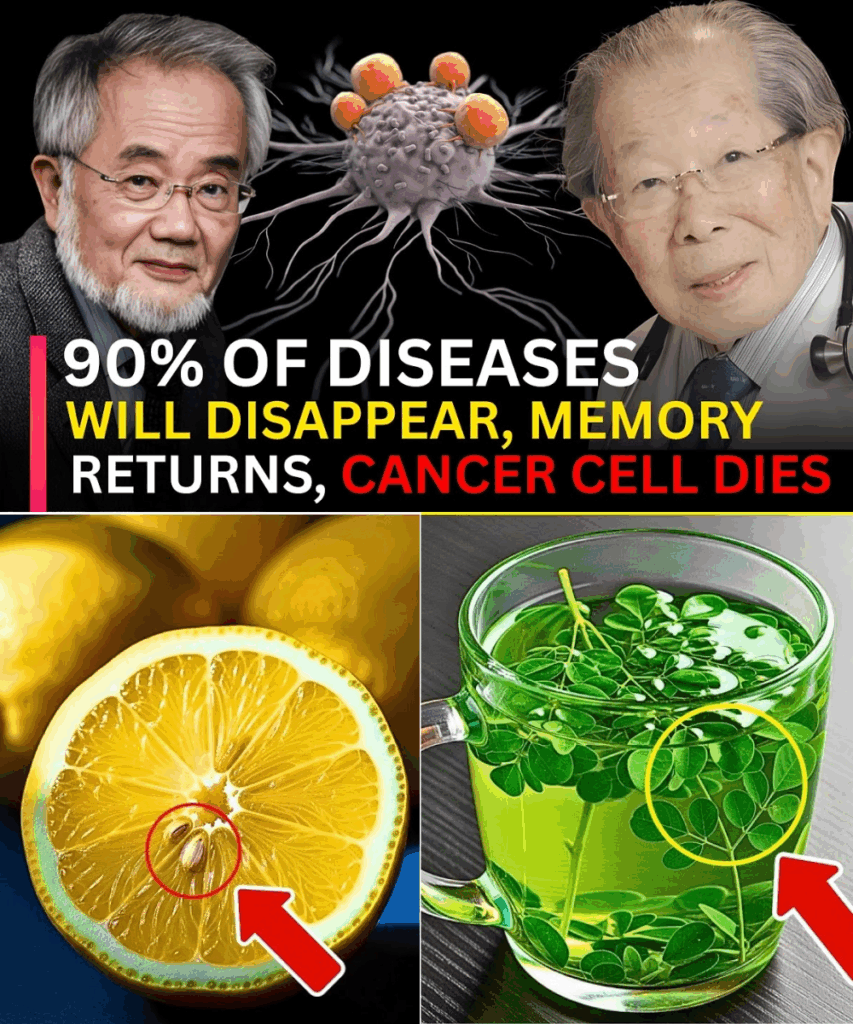Japanese Longevity Secrets: What the Oldest Doctors in Japan Eat Every Day to Stay Young and Strong

If you’ve ever wondered why Japan has one of the highest life expectancies in the world, you’re not alone. Japanese doctors — many of whom live well into their 90s and remain active, calm, and youthful — have long practiced a philosophy where food is not just fuel, but medicine.
Their secret? A daily diet that nourishes the body at the cellular level, supporting natural regeneration and slowing down aging from the inside out.
Let’s explore the foods and habits these doctors recommend — and how you can bring a little bit of Japanese longevity into your life.
🧬 The Science Behind Longevity and Cell Renewal
Modern science confirms what Japan’s oldest physicians have known for centuries: your body constantly renews itself. Every few months, most of your cells are replaced. But this process weakens with stress, processed foods, and toxins.
The Japanese way of eating emphasizes balance — providing antioxidants, minerals, and phytonutrients that protect your cells and help them repair. Think of every meal as part of your body’s ongoing rejuvenation plan.
🍃 The Daily Longevity Diet: What Japanese Doctors Eat
1. Dark Leafy Greens
Spinach, kale, and Japanese mustard greens (komatsuna) are packed with chlorophyll and iron. They oxygenate the blood and help detoxify the body, encouraging faster cell repair.
2. Colorful Fruits
Blueberries, citrus fruits, and apples provide vitamin C and polyphenols that slow cellular aging and strengthen the immune system.
3. Fatty Fish
Salmon, sardines, and mackerel — rich in omega-3 fatty acids — reduce inflammation, protect the heart, and promote youthful, elastic skin.
4. Legumes and Soy
Tofu, edamame, miso, and natto are staples of Japanese cuisine. They supply plant protein and isoflavones that balance hormones and protect cell membranes.
5. Nuts and Seeds
Walnuts, sesame, and chia seeds stabilize energy and enhance brain function with healthy fats and minerals.
6. Herbs and Anti-Aging Spices
Ginger, turmeric, garlic, and green tea are natural anti-inflammatories that improve circulation and may lower cancer risk.
7. Sea Vegetables and Mushrooms
Seaweed (nori, wakame) and shiitake mushrooms provide iodine, zinc, and immune-boosting polysaccharides that promote longevity and vitality.
🍱 How to Eat Like a Japanese Doctor
- Eat smaller portions, more variety. Combine multiple colors and textures in each meal.
- Avoid processed and sugary foods. They accelerate inflammation and oxidative stress.
- Stay hydrated. Choose water or unsweetened green tea.
- Balance every plate. Include protein, fiber, and healthy fats.
- Practice “Hara Hachi Bu.” Stop eating when you’re about 80% full — a core Okinawan longevity habit.
👵 Lessons from Japan’s Centenarians
In Okinawa — famously called the Land of Immortals — many live past 100 with strong minds and bodies. Their lifestyle blends:
- A simple, vegetable-rich diet
- Daily gentle activity like walking or gardening
- Deep community ties and a positive, grateful mindset
Their meals are colorful, modest, and unhurried — food is shared with appreciation, not consumed in haste.
🌿 The Takeaway: Eat Smart, Age Slowly
Japanese longevity teaches a timeless truth: aging gracefully is less about genetics and more about daily choices.
When you nourish your cells with natural, antioxidant-rich foods, you activate your body’s self-healing power. You don’t need extreme diets or miracle pills — just mindful eating, balance, and consistency.
Start simple today: swap processed snacks for fruit and nuts, replace coffee with green tea, or savor grilled salmon for dinner. Small habits, practiced daily, can add vibrant years to your life.
✨ Eat well. Move gently. Live gratefully. Your body — and your future self — will thank you.





